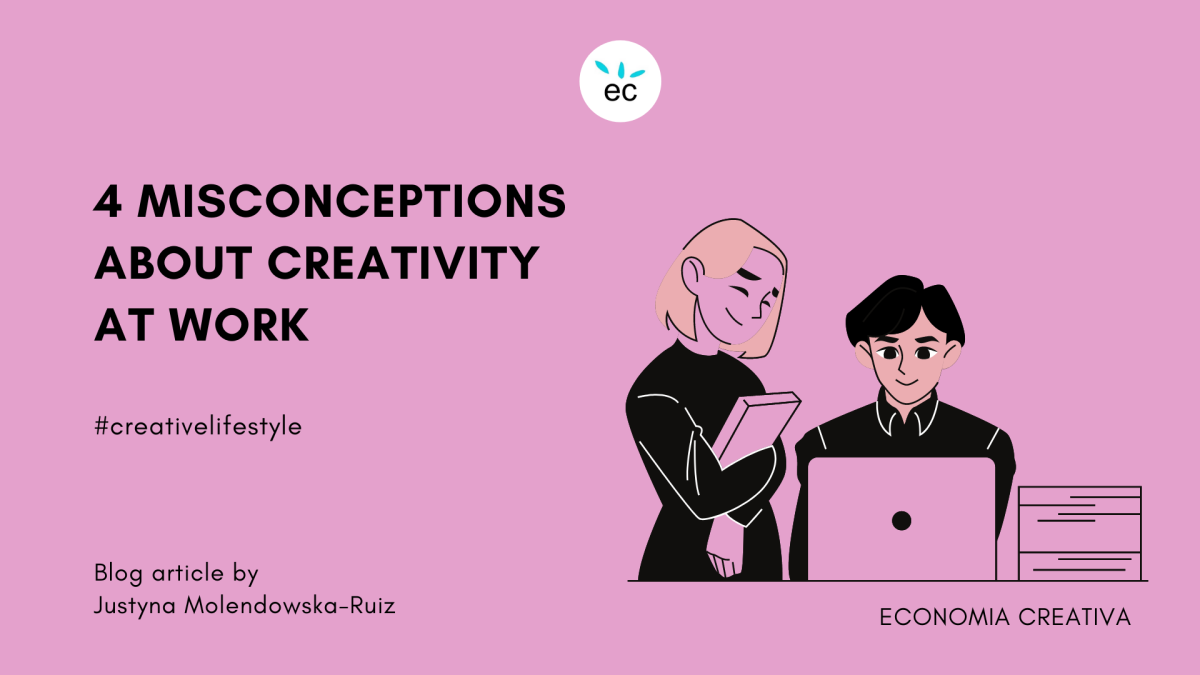Why do organizations have so much trouble enabling employee creativity?
In today’s business environment, creativity applies to everyone. The organizations that win in these challenging times have creativity as a core priority at all levels of the organization.
Today, creativity is everyone’s job. For every organization to enjoy success, creativity must be harnessed at all levels. There isn’t a job function that can’t benefit from creative problem solving, fresh ideas for the future, or simply finding a better way.
Do companies really create and support environments in which creativity can flourish?
Often executives make common mistakes that prevent teams from generating new ideas.
We identify three misconceptions that managers must overcome to effectively build creative cultures.
1. The Productivity Illusion
We wrongly assume that the best ideas come to us quickly – a cognitive illusion that limits our creativity and that our first ideas originate from our best and freshest thinking. This assumption could not be more wrong. The misconception that slow decision-making stifles innovation often leads to the illusion that productivity requires speed. Trying to resolve things too quickly, especially for complex problems, is detrimental to innovation because you fall prey to premature closure. The best ideas, come to those who wait. And by learning to exercise a bit of patience and perseverance, we can all find more innovative solutions to our problems.
2. The Intelligence Illusion
Creative thinking is more cognitively demanding than logical thinking. Critical thinking is a higher-order thinking skill. Higher-order thinking skills go beyond basic observation of facts and memorization. Higher-order thinking skills are thought processes that help you connect information in meaningful ways and use those connections to solve problems. In practical terms, this means that analyzing an idea is easier than synthesizing a new one from multiple sources. When making decisions based on logic alone, you are playing it safe and putting a limit to what you could accomplish. Creative thinking is looking for new ways to solve a problem. Albert Einstein said: “Logic will get you from point A to B. Imagination will take you everywhere.” Leaders should approach ideas with an open mind to acknowledge useful aspects and improve weaknesses.
3. The Brainstorming Illusion
How often have you used brainstorming to solve the problem? Chances are, you’ve used it at least once.
For decades, people have used brainstorming to generate ideas and come up with creative solutions to problems. However, new research shows that individual thinking produces much better results than group thinking.
Business leaders agree that creativity and innovation are fundamental to competitive advantage. Most teams associate successful ideas with group work. Surprisingly, this is not always true. Group brainstorming seems more productive, not because of the number of ideas that emerge, but because of the social impact. The social connection that we experience with each other in brainstorming makes us happier and we mistake that for productivity.
The Yale research found that the number of ideas created by individuals and then combined was twice as many as the ideas generated by the collaborating group.
4. The illusion of networking events
We go to networking events not only to establish meaningful contacts, but also to look for new, original ideas that will stimulate our creativity, and thanks to which we will bring innovation to the company. Unfortunately, others have similar ideas. And as a result, we end up disappointed and with a sense of wasted time. Most events are not worth the time or money as you’re unlikely to make useful contacts.
Ask yourself honestly how many meaningful connections did you actually make at the last networking event? If you can honestly say you benefited significantly, then go.
As long as they have a purpose, like an awesome speaker, creativity or training sessions, We say yes. If people will be there that have great and creative ideas and energy to share, We say, yes. But attending an event just to hand out business cards and get a stack in return with the hopes of landing a new client or important connection. We say, no.
Problems occur, because many people do not understand what real networking is?
Networking in short, it’s about exchanging value, like a piece of content or referral, and not just a business card.
Alex Turnbull the CEO & Founder of Groove confirmed that networking events aren’t really the best places to network in the first place. “Networking events bring people together. But what happens after, is just noise. The people that everyone wants to connect with get bombarded with noise from all directions, and everyone else is slowly picked off by those who are only there to pitch their products or services to anyone who will listen.”
The truth is that the most important networking opportunities happen during less formal moments. Perhaps, consider checking in with some of your existing connections. Effective networking can happen at any time of the day, and in some cases, you don’t even have to leave your house.
Instead, do something notable that makes people want to network with you. Build something that is creative, outstanding and creates value for people. Let your work speak of itself.
And especially now, with the ubiquitous access to the internet and hybrid working models, it’s never been easier to build authentic relationships online without having to waste your time attending a networking event.
“True networking does not mean meeting people; it means becoming the type of person other people want to meet.”
Monroe Mann
In businesses, we’re faced with unprecedented challenges. The stakes are higher than ever, but so is the opportunity. Harnessing our own creativity can be the difference-maker for people and companies.

